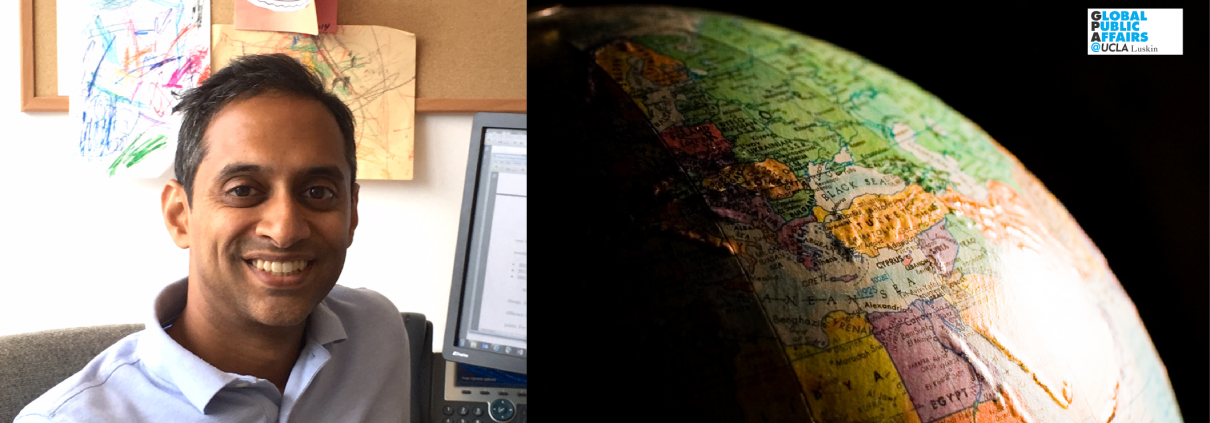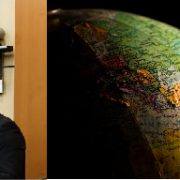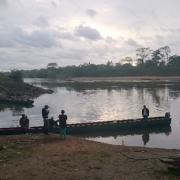An Alumni Q&A with Aravind Moorthy PhD Economics ’12, MPP ’06
The following interview is an edited Q & A transcript with Luskin alumnus Aravind Moorthy PhD Economics ’12, MPP ’06
Why did you choose to study at UCLA Luskin?
I came to Luskin looking for a career shift. I’d been designing software for the financial industry for the past 5 or 6 years, and wanted to turn my focus to serving the public interest. I chose Luskin–which at that time was a relatively young program, and was just called the School of Public Policy and Social Research–because it offered a great deal of flexibility in choosing my coursework and allowed me to tap into UCLA’s strengths across several social science disciplines. Plus, I was struck by how friendly and accessible the faculty and staff were during my interactions with them.
Did Luskin live up to your expectations?
Luskin far exceeded my expectations. The support I received from faculty and staff to pursue my interests was incredible, and continued past my days at Luskin into my time as a doctoral student at UCLA’s Department of Economics. Luskin professors really seemed to care about my career and interests, and connected me with research and teaching opportunities that stretched across campus. I found myself studying methods to value natural resources alongside engineers and scientists in UCLA’s Environmental Health Sciences Department, investigating the cost-effectiveness of California’s HIV programs for the California State Office of AIDS, and later getting advice on my dissertation work in India from Luskin professor Rob Jensen, whose work was required reading for anyone doing development economics research in the region. In addition to Rob, I’m particularly grateful to Professor Arleen Leibowitz for her mentorship and friendship through my years at Luskin and beyond.
What are some of your fondest memories from your time at UCLA?
I loved being a teaching assistant and tutor for the economics and statistics sequences in the Public Policy program. The students were experienced professionals who really cared about how to apply classroom knowledge to the real world, and I learned so much from them during our discussions. The twice-weekly get-togethers at the Westwood Brewing Company with my fellow students also stand out as a fond memory. Many of my closest friends today are the folks who sat across the table from me during those sessions.
What led you to pursue your current career, and how has your work/interests evolved since your time at Luskin?
In my current career, I study what works in alleviating global poverty. While I enjoyed my previous work in software development, I’d known for awhile that I wanted to contribute to society in a different way and had always been interested in the causes of and solutions to inequity.
Also, around the time I was in grad school, the world of development aid was undergoing a shift in culture. After a few high profile failures of well-intentioned initiatives, people were starting to ask whether aid programs really worked as expected. I think that the failures overshadowed a lot of successes, but the new focus on evidence-based policy was a really good thing for improving our aid strategies and for public accountability. I was drawn to quantitative research and economics as a “lens” for studying these issues because they offered objectivity and relied on hard evidence.
Students will be interested to know about your current work related to international development. What is the nature of your work? What do you enjoy about it? What have been some of the challenges?
Most of my work is conducting impact evaluations of development initiatives. These generally involve comparing the outcomes of a group of people who were exposed to a development initiative to a similar group who were not. Since my expertise is in designing these types of evaluations, I get to work across a large swath of sectors and regions. For example, right now, I’m studying a scholarship program for underprivileged youth in Uganda and an irrigation infrastructure program for farmers in Senegal.
One of the things I love most is learning about the communities affected by the initiatives I study. You can’t study development programs solely by staring at spreadsheets of survey data from an office in DC. I have come to deeply value qualitative research and direct field experience in my studies, and I rely on working a multidisciplinary team that has subject matter and regional expertise. Learning what’s really happening on the ground–the cultural context, the decision-making processes of program recipients and local institutions, the real-life barriers and constraints–is essential both to designing an evaluation and to interpreting your findings. The other thing I love is those moments when we discover a development strategy that really works well.
I think the most challenging aspect of the work is engaging with people who are struggling and not benefitting from the programs I study. To truly understand a program’s impacts, I must study groups who are not receiving access to it, and those who might be adversely affected by the programs. To show our appreciation and respect for their contributions, we try to find ways to make our findings valuable and actionable for these groups.
What advice do you have for students who seek to become “global citizens”?
Connect with others doing the work you’re interested in. Luskin alumni and professors can be huge assets in connecting you with opportunities at internationally-focused organizations. Attend events that put you in contact with people you want to meet, like those hosted by the Global Public Affairs program.
Learning a foreign language helps a lot. Pick one and focus on it. I wish I’d spent more time focusing on a single language while I was in school.
Most of all, get out there. Nothing substitutes for field experience. If you’re interested in designing or running development programs, find opportunities out in the field where you get to help implement them. If you’re interested in studying development programs, find opportunities out in the field where you get to help with research. And when you go, go humbly, with open ears and few opinions about what the answers really are.










